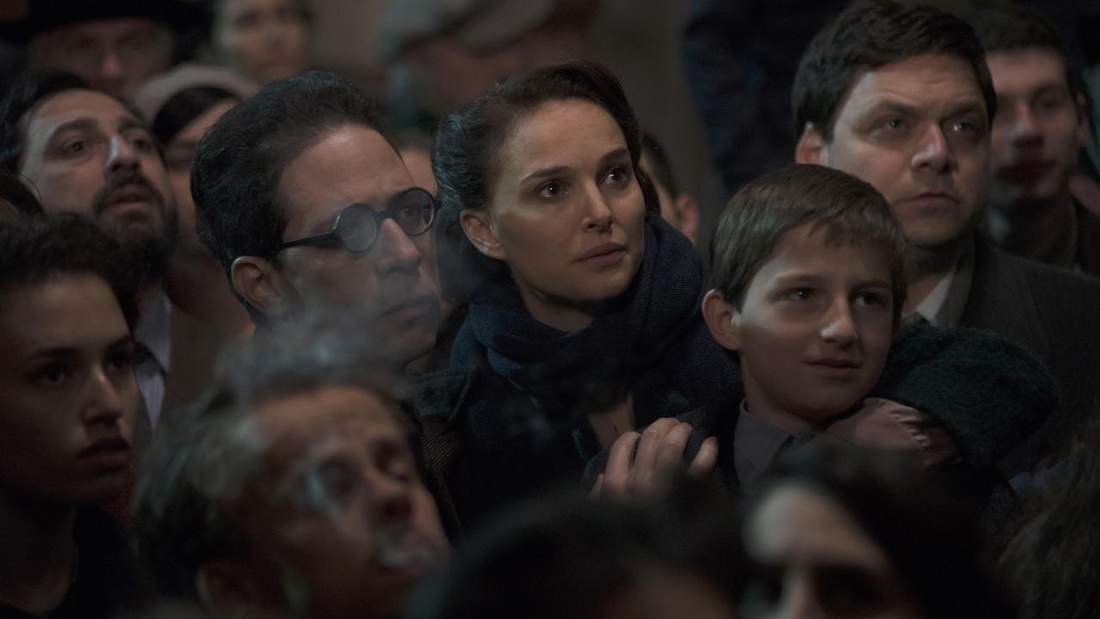Based on the acclaimed memoir of the same name by Amos Oz, A Tale of Love and Darkness follows narrator Amos (Amir Tessler) recounting stories about growing up post World War II in an attempt to dissect his mother’s unsolvable, mystery malaise. Portman focuses less on the setting and time period, and instead on the setting and time period’s effect on Fania (Natalie Portman), Amos’s mother who would certainly be classified with clinical depression today (it’s timely accurate that the word “depression” is never mentioned throughout the movie, since that was a disorder not properly classified or taken seriously at the time). Fania is often found staring broodily out the window in muted grey dresses, sitting in the rain like it’s her natural habitat, and doesn’t say much to her child or husband regarding her condition. She is constantly haunted by her memories of living carefree with her sisters in Ukraine, a land that is not so caught up in conflict and confusion as Jerusalem.
Scenes with her bring the movie and audience down, as they should given the mental disorder being shown on screen. Fania’s dreams of moving to Israel involved marrying a handsome farmer or soldier, but she instead feels suffocated by the normalcy and nerdiness of Amos’s father, a Lithuanian literary critic. The stability and happiness of Amos’s father and Amos is a dream itself, but a dream come true is inevitably a disappointment, which is a common Zionist idea. In his book, Oz often speaks on how Israel as a place for Jewish people was more of a hopeful dream than a reality, and would just eventually lead to disappointment as dreams too-good-to-be-true eventually end up. Portman attempts to play out this idea with Fania and the supporting characters, but there’s not enough material there for the message to be properly conveyed, and instead Fania’s depression is shown in melodramatic visual cliches.
With the pulling source material and important setting/time period, it’s a slight disappointment that Portman couldn’t do more with what she was given. A Tale of Love and Darkness does have hints of promise in Portman’s work, and I’m eager to see where she goes next. Her decision to adapt Oz’s memoir because of her Israeli pride is one of genuine compassion, and I’m interested to see what other films of this ilk she can produce in the future. The Israeli-Palestine conflict is topic not often covered in classrooms, films, and mass-media news, but films like A Tale of Love and Darkness are necessary reminders of the harsh realities and absolute dreariness that reside there every day.
GRADE: C-

 RSS Feed
RSS Feed
